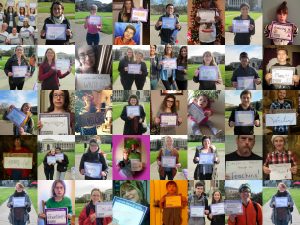 We’ve all met that absolutely brilliant friend who still cannot read emotion any better than we can read Kant. This is a powerful example of the notion of emotional intelligence, which is often quite different from more traditional conceptions of intelligence.
We’ve all met that absolutely brilliant friend who still cannot read emotion any better than we can read Kant. This is a powerful example of the notion of emotional intelligence, which is often quite different from more traditional conceptions of intelligence.
Instead, emotional intelligence seeks to capture one’s intuitive grasp of other people’s emotional states and their ability to act on this insight.
Dr. John Gottman, who runs The Gottman Institute with his wife Julie, has explored how crucial emotional intelligence can be promoting healthy relationships, such as marriages. Based on his research, he emphasizes the need for couples to be in tune with the sometimes implicit emotional needs of their partners.
In fact, according to a 1998 study, successful marriages often depend on the husband and wife allowing each other to exert influence and control over their actions and behavior. While this is important for both sexes to keep in mind, he also found that men have more trouble accepting influence, seeing this as a loss of power.
While women already tend to allow their husband to influence their behavior, the frequent refusal of men to do so can contribute to tension in the relationship. This is certainly not intended to attack or criticize men, but instead opens the door to an exploration of how both genders are taught to interact from a young age.
In his book, The Seven Principles of Making Marriage Work, Dr. Gottman explores the different manners in which boys and girls are socialized as children. Boys’ games, he explains, are focused on winning, rather than on the emotions of those involved. It is generally accepted that some participants will lose or be hurt, and they are expected to handle that pain on their own.
Girls, on the other hand, are taught to emphasize feelings. Instead of dedicating play time to winning, girls will often focus on building relationships with their friends. This provides important training for future romantic relationships by developing an emotional sensitivity and an awareness of social nuances.
Because of the deep developmental roots at play, The Gottman Institute also promotes a course dedicated to helping parents cultivate the emotional intelligence of their children, both male and female.
This leads to the conclusion that husbands (and boyfriends) ought to avoid rejecting their partner’s influence. This can take the form of working to understand the other’s point of view or sometimes simply just doing what they ask without argument.
Dr. Gottman explores some practical applications of this principle by looking at everyday interactions between partners. For example, this can involve looking beyond the tone or inflection of a critical comment and looking at such comments as “bids for connection” that help promote intimacy through commonplace actions like sharing chores.
In addition, he focuses on cultivating a deep appreciation for the other person’s perspective, accepting their inadequacies, and understanding their hopes or desires. This can be a difficult process, but helps further an understanding of how to recognize “bids for connection” and how to accept the other person’s influence.
For more information on Dr. Gottman and emotional intelligence, check out our past blogs here and here.
 Moebius Syndrome, a rare form of facial paralysis, makes social interaction particularly difficult. Because this condition prevents people from displaying any form of facial expression, those dealing with it are often seen as unhappy or downright unfriendly.
Moebius Syndrome, a rare form of facial paralysis, makes social interaction particularly difficult. Because this condition prevents people from displaying any form of facial expression, those dealing with it are often seen as unhappy or downright unfriendly.
